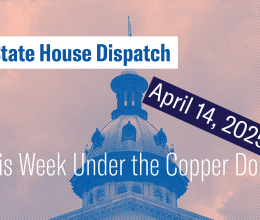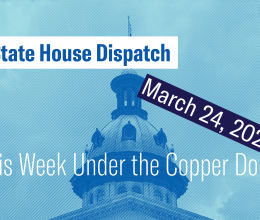
COLUMBIA – Civil rights leaders, teachers, students, and other concerned citizens are condemning the decision by Superintendent Ellen Weaver’s S.C. Department of Education to deny academic credit for Advanced Placement African American Studies programs beginning this fall. A press conference will take place on June 11.
WHO: ACLU of South Carolina, American Association of University Professors of SC, Avery Institute, E3 Foundation, Gullah Geechee Chamber of Commerce, National Action Network of Columbia, South Carolina State Conference of the NAACP, The SCEA, and others
WHEN: 11 a.m. Tuesday, June 11, 2024
WHERE: State House grounds (1100 Gervais St., Columbia), east side beside the African American History Monument
After holding the press conference, members of the coalition will also address the South Carolina Board of Education at 1 p.m. on June 11, urging action to protect the teaching of Black history in South Carolina classrooms.
The decision by the S.C. Department of Education to deny credit for AP African American Studies courses will affect students in school districts including Charleston County, Berkeley County, Richland 1, and Richland 2, according to reporting in The Post and Courier. Students in those districts will no longer have the opportunity to earn college credit for AP African American Studies.
By way of explanation for the abrupt decision to effectively end AP African American Studies, the S.C. Department of Education blamed “significant controversy surrounding the course.” The department also pointed to a one-year pro-censorship budget proviso, along with a classroom censorship bill (H. 3728) that has not been signed into law. In short, the department is appealing to manufactured controversy and a law that is not on the books.
“Black history is South Carolina history. By their actions, leaders in the South Carolina Department of Education are sending a message that the state does not want students learning their own history, with all its tragedies and triumphs,” said Josh Malkin, Advocacy Director of the ACLU of South Carolina. “African American studies help us understand our past and our present more clearly, and the attacks we have seen on these fields of study will impoverish the education of the next generation. We cannot allow these attacks to stand.”
“In the past, South Carolina has prioritized the importance of teaching African American history such that it is mandated by statute. The latest memo from the state Department of Education sends the message that African American history is controversial,” said Brenda C. Murphy, President of the South Carolina NAACP. “Educating our young people on their history should not be predicated on how presumably controversial a topic could be but should reflect the true story of our state and our people. AP African American studies gives students the opportunity to explore history and culture with deeper understanding and meaning, and now many South Carolinian students will be deprived of that opportunity.”
"Those who do not know their past are bound to repeat it," said Tiffany James, President of the National Action Network of Columbia. "The South Carolina Department of Education's decision to deny credits for AP African American Studies indicates that they plan to repeat the past by making South Carolina great only for a select few. Learning SC history in its totality includes learning about Black History. Taking away that choice is intentional and irresponsible. Our children deserve better."
By denying academic credit for Advanced Placement African American history, the state Department of Education denies economic advancement by negating the potential of African American tourism opportunities, said Marilyn Hemingway, CEO/Founder of the Gullah Geechee Chamber of Commerce. “South Carolina proudly promotes a multi-billion-dollar tourism industry showcasing beautiful places and beautiful faces, yet by not providing AP African American History Studies prevents turning a multi-billion dollar potential into reality, even while numerous studies indicate the growing global interest in African American and Gullah Geechee Heritage.”
“Elective courses like AP African American Studies, which provide college credit, help students and their families save thousands of dollars in tuition. We should expand the number of AP courses offered to our high school students, not take them away,” said Sherry East, President of The SCEA.
According to Steve Nuzum, Board Member with SC for Ed, “Because of the actions of the Department, SC students have lost out on an opportunity to engage with African American issues, an especially vital pursuit given our state’s complex racial history. Districts have been left with incomplete information in the course registration process, and parents and students have been denied the opportunity to decide for themselves whether to take part. The statement provided by the Department lacks transparency about why these actions have been taken.”
Lowcountry Teacher Advocates gave the following statement: “The Lowcountry Teacher Advocates stands with teachers, students, and parents in opposition to the S.C. Department of Education's decision to deny credit for AP African American Studies, which limits students' access to comprehensive history education. We stand with other organizations to advocate for the inclusion of Black history in the curriculum, highlighting its importance for understanding South Carolina's full history and present.”







